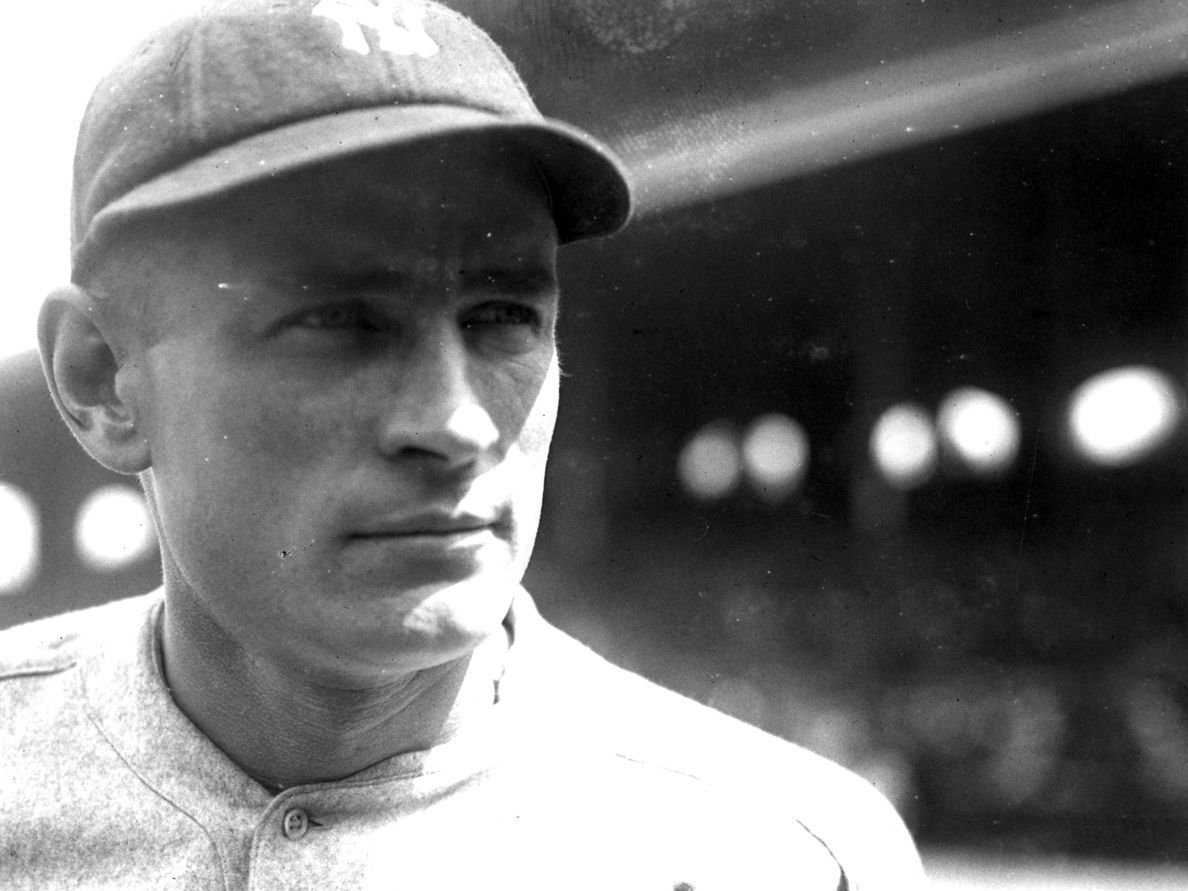Ecclesiastes
Ecclesiastes is the first book I ever studied and heard a sermon series on as a young Christian so this deep dive brought up some great memories. It was also a great point of reflection as I looked at how much wisdom we have the opportunity to accumulate over the span of 20 years. And that’s what Ecclesiastes is all about - wisdom. Not information, but wisdom. Since the dawn of the Information Age, we’ve increased the value of information and lost the perspective of wisdom. Hopefully a look at Ecclesiastes will help us all!
As you prepare to read about some of the connections between the book and the world of baseball, take some time to watch both the Read Scripture overview of Ecclesiastes and the Bible Project’s teaching about the book. In addition, I’d recommend diving into Tim Mackie’s sermon series on Ecclesiastes titled “The Divine Disconnect”.
Due up in the Bottom of the Ninth:
- The March of Time
- Keep the Lord’s Commandments
- The Random Nature of Life
The March of Time
One of the major themes of the book of Ecclesiastes is this idea of Hevel. Most of our translations take this word and communicate it as ‘meaningless’. But Hevel is this really cool word that seems to mean so much more. It’s a lot more like smoke - something you can see, but, when you try to grab it, you grab at nothing. It’s also mentioned as “chasing after the wind.” Pretty wild, right?
This is part of how the book tries to communicate the march of time. Generations come and go, but the earth will be here long after. Everyone will be forgotten as we are just a blip on the radar of world history. What we do and try to accomplish in the world seems important at the time, but what actually lives on tens, hundreds, or thousands of years later?
We use sports as an attempt to overcome this idea and we’ve seen a couple of things occur in baseball this week as examples, both around the almighty home run. Everyone in baseball celebrated the 700th home run by Albert Pujols this week as he eclipsed that milestone. He became the fourth player to reach that level, trailing only Bonds, Aaron, and Ruth. It’s truly amazing…but only because those of us in baseball care and make it amazing. The record board is tangible - we can see it, we can understand it. But in the scope of life, it’s Hevel. The record becomes an idol of sorts, an attempt to give this time and person meaning. And it does…until you fast forward 1,000 years and no one is playing baseball any longer.
Almost more fascinating is the whole Aaron Judge chasing 60+ home runs thing. As a kid, I can only imagine how locked into that chase I would have been. But, as an adult who lived through the summer of McGwire and Sosa, and subsequent Bonds chase of both single-season and career home run records a few years later, I’m not. Is it because the number is no longer significant because it’s been eclipsed? Maybe. Does it have something to do with the steroid/PED component of those races? Probably even more likely. How you try to mark time matters. But, in the end, it is all Hevel as well. Time will continue marching and these events, too, will be just a blip on the radar. We should not try to apply too much meaning to any of it.
Keep the Lord’s Commandments
The second major lesson of Ecclesiastes is that we all face the same fate - death. We’re all going to join the dead, yet we should not lose hope. He encourages us to stop controlling our lives, live life with open hands, as we fear the Lord and keep His commandments.
But here’s the interesting part of that wisdom - this doesn’t mean life is going to turn out perfectly as a result. Remember that Ecclesiastes exists as a part of the “wisdom” books where the authors are exploring all the ways we find meaning and purpose apart from God and with God. The gift of God is to enjoy the good things in life. The teacher of Ecclesiastes says to enjoy life as we experience it, not how we think it ought to be.
This brings up an interesting baseball story from about ten years ago involving Josh Hamilton. If you remember, Hamilton was a highly-touted, #1-overall draft pick in 1999 whose life was riddled with addiction while he was in the minor leagues. He found the Lord, got clean, and had a nice run of redemption from 2007-2013. His 2008 performance in the Home Run Derby in Yankee Stadium was one of the most memorable in that event’s history. It was an incredible story of redemption and restoration.
But in 2012, Hamilton quit chewing tobacco. For him, he was "being obedient to the Lord in quitting chewing tobacco." He was trying to keep the Lord’s commandments and it had very negative consequences. Years of more serious addiction and a desire to purify his pursuits ended up bringing a fairly fast close to his career. By 2013, Hamilton was out of baseball.
I don’t know Josh Hamilton, but I am going to assume that the fulfillment he experienced giving up things that held him captive for as long as they did allowed for never levels of peace and joy. Only those who attempt to cut loose chains from the past and purse the Lord’s commands will have the opportunity.
The Random Nature of Life
Here’s something that is hard for us to accept - Ecclesiastes 9:11:
“I have observed something else under the sun. The fastest runner doesn’t always win the race, and the strongest warrior doesn’t always win the battle. The wise sometimes go hungry, and the skillful are not necessarily wealthy. And those who are educated don’t always lead successful lives. It is all decided by chance, by being in the right place at the right time.”
Ew. No matter what, there’s a random nature to life. Time and chance happen to us all and we really don’t control anything. Sports are one way we try to exercise control over the uncontrollable. I’ve always felt that baseball coaches understand this better than others. We’re farmers trying to water seeds. We don’t control a round ball hitting a round bat, and efforts to attempt to do so are so foolish. We can water two seeds equally and experience incredibly different results.
It’s cliche in baseball to mention Wally Pipp in this context, but there’s a reason we all recognize the name and story. Pipp comes to the Yankees in 1915 and improves the lineup during the “dead ball” era. He leads the American League in home runs in 1916 and 1917. He’s a part of a team that includes Babe Ruth and wins three consecutive AL pennants from 1921-1923, including a World Series win in 1923. Then, in 1925, Pipp allegedly comes to the ballpark with a severe headache when manager Miller Huggins tells him, "Wally, take the day off. We'll try that kid Gehrig at first today and get you back in there tomorrow,” after PIpp asked for a couple of aspirin. Gehrig then starts at first base in 2,130 consecutive games.
Pipp had a good career, but gave way to a legend of the game. How should we feel about the random nature of that? I’m not sure that should be our focus. It might be best for this story to remind us that baseball’s not the point. There are much bigger and better things to hitch our wagons to in life. Baseball is a tremendous game, but a terrible god. Let us remember that the good news of scripture is designed to make the Lord the most important thing so these random acts become less important.




